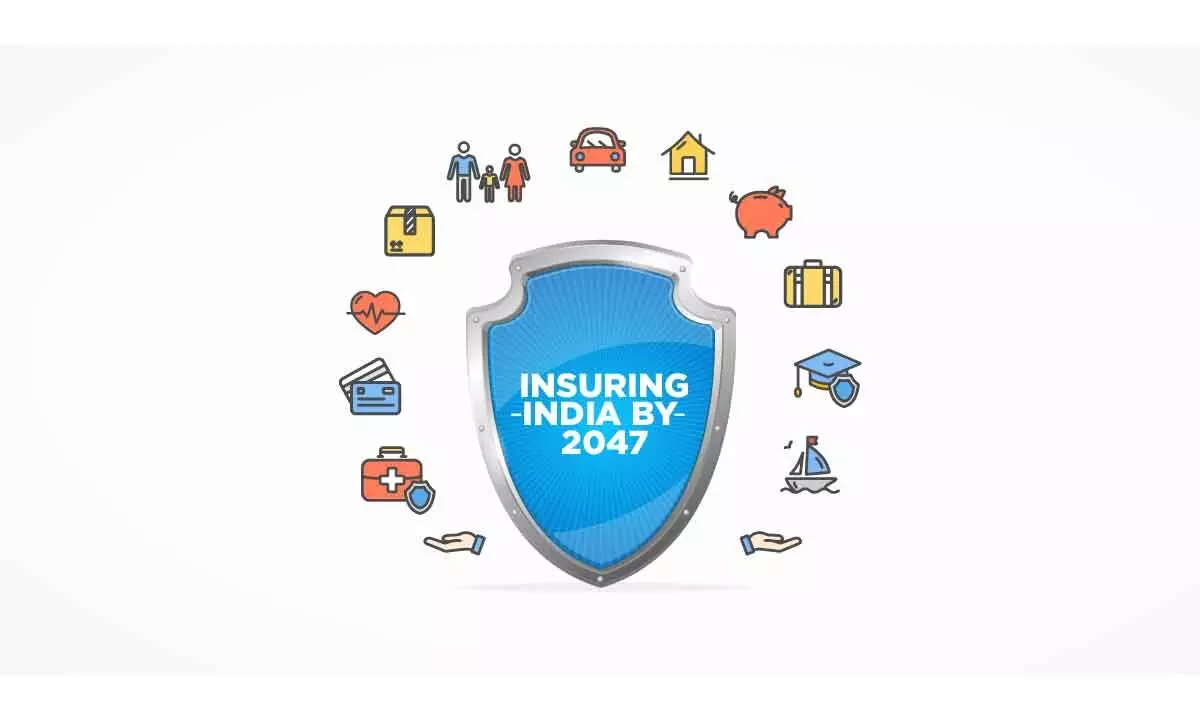Can India become an insured society by 2047?
image for illustrative purpose

Even as the insurance sector regulator, Insurance Regulatory and Development Authority of India (IRDAI) enters its 25th year, it would do well to not just retrospect but come up with a workable plan whereupon it could achieve many more milestones in the days ahead. The regulator has played a crucial role during this period in safeguarding policyholders’ interests and providing remarkable support for the development of the sector. Its recent products and distribution reforms have been setting the stage for deepening insurance penetration further, while also creating entrepreneurial opportunities for many in the country. Since inception, IRDAI has played a pivotal role in fostering a robust regulatory framework that has propelled the sector towards greater transparency, efficiency and customer-centricity. Adapting swiftly to budget changes and championing regulatory reforms, the sector demonstrated agility and commitment under its current chairman Debasish Panda. Our ‘Insuring India by 2047’ initiative sets the stage for a transformative era, establishing new benchmarks and propelling the industry towards excellence. From introducing innovative products to ensuring fair practices and protecting the interests of policyholders, IRDAI’s unwavering commitment to excellence has been instrumental in shaping the evolution of the industry.
As one looks towards the future, one remains dedicated to upholding the highest standards of integrity, service, and innovation, in alignment with IRDAI's vision of a dynamic and inclusive insurance ecosystem. Now we should look at certain challenges thee industry was faced with. For example, at a time when the non-life insurance industry maintained double-digit growth in gross premium in FY24, it fell short of the magical Rs. thee trillion mark amid a slowdown, reveals data compiled by the industry body, General Insurance Council. On the other hand, Indian life insurers’ shares performance has been greatly influenced by regulatory changes driven by the IRDAI, personal taxation reforms by the Union Government, and by the actions of direct and indirect tax authorities.
Life insurers can no longer, as per Emkay, have a prey-predator relationship with distributors, and will need to keep things simple so that they sell risk and savings products and will no longer be able to hide the high costs behind a veil of complexity. The health insurance plans are too generic to warrant the attention of Indian women, reveals a study by Future Generali Insurance.
The fact is that 74 per cent of Indian women don’t get involved in decision-making when it comes to health insurance. More startling is that 75 per cent of women believe that existing health insurance policies fall short of addressing women-specific needs. In fact this is a major area that the industry needs to look more closely as women comprise nearly 50 per cent of the country’s population. Whatever be the case, it is time for celebration at IRDAI, which has been consolidating itself at a steady pace. Moreover, one can hope that the insurers, both life and non-life ones, reaffirm their commitment to continue working together towards a brighter, more resilient future for the Indian insurance industry.

